
Interracial Marriage returns as an issue in the law
December 7, 2022
This blog was written as part of Charlotte Mecklenburg Library's Black Lives Matter program initiative. Learn more about the program and corresponding events here.
The blog was written by Lawrence Turner, an adult services librarian at South County Regional Library.
An anonymous quote about marriage says: Marriage stands the test of times when both you and your spouse work towards making things better. And we are tested the most when we face adversities. If you can sail through the adversities as one, as a team, then you have won half the battle.
In the United States, that quote is put to the test with the legality of certain marriages.
The Respect for Marriage Act is in its final stages of passing in Congress as ends its session this year. Legislators sponsored the measure to preserve same-sex marriage, as a defense to guarantee it against a possible Supreme Court challenge. Interracial marriages were roped into the legislation proposal for the same reason.
Whereas same-sex marriages received Supreme Court support for legalization nationwide in 2015, and garnered public approval at a new high at 71% according to a May 2022 Gallup poll, interracial marriage is a much older social custom. In 1967 the Supreme Court validated interracial marriages in the Loving v. Virginia case. Last year, the Gallop Poll found the public approved interracial marriage at a new high of 94 percent. When the question was first polled in 1958, approval was at four percent.
While interracial unions are accepted to a large degree in the U.S., its early history can stand a brief peek in the spotlight. A genuine timeline of attitudes to interracial marriage should go back to the nation’s founding as it started as colonies. In 1968, the Los Angeles Times-Washington Post News Service reported in a story that contempt for intermarriage grew as the population and influence of white women increased in settlements which previously had very large white male numbers. Herbert Moller, a sociologist, said, “…Through their enhanced influence on family and community life, women became more or less unintentionally the foremost agents in the establishment of racial barriers.”
As to be expected, laws followed to enforce these attitudes. In Sheryll Cashin’s book, Loving: Interracial Intimacy in America and the Threat to White Supremacy, she writes Virginia’s first comprehensive slave code in 1705 made that point. Enslaved Africans during that year lost rights they had previously enjoyed equal to white indented servants. As a result, the white servants—i.e., white individuals—gained new privileges to bond closer to slaveholders. The code “included penalties against interracial marriage” while not doing the same for “master/slave sex, which would become the dominant form of interracial sex in the eighteenth and nineteenth centuries.”
Neighboring state North Carolina would follow the model from Virginia as other states Cashin writes. Although in a modest dissention, the North Carolina Digital Collections, a web-based Charlotte Mecklenburg Library resource, shows a documented interracial marriage in a colonial record of a “mulatto” (mixed African and European ancestry—an outdated and offensive term) man and white woman in 1725. The couple came from Virginia.
Fast forward several hundred years to the present-day United States and consider the changes. Laws and social norms have made tremendous strides to make formerly enslaved African descendants’ full American citizen in legal standing. What may come next is the question: have those deep-seated attitudes about racial separation in marriage changed too? On the surface, it appears so. Despite brash voices or newsworthy incidents of racial hate, today there is a bottom line for many to be accepting, or at least tolerant, of individuals of different races marrying.
Returning to the earlier mentioned Gallup poll article, it said: Opposition to interracial marriage still exists, but it is quite small. Future measures will indicate whether 94% is the ceiling for approval, or if there is still room for growth in acceptance.
Find stories about real-life interracial couples, the Loving v. Virginia case and more in the Charlotte-Mecklenburg Library, click to access them here.
Get access to healthcare resources with the Library and Novant Health
October 16, 2023
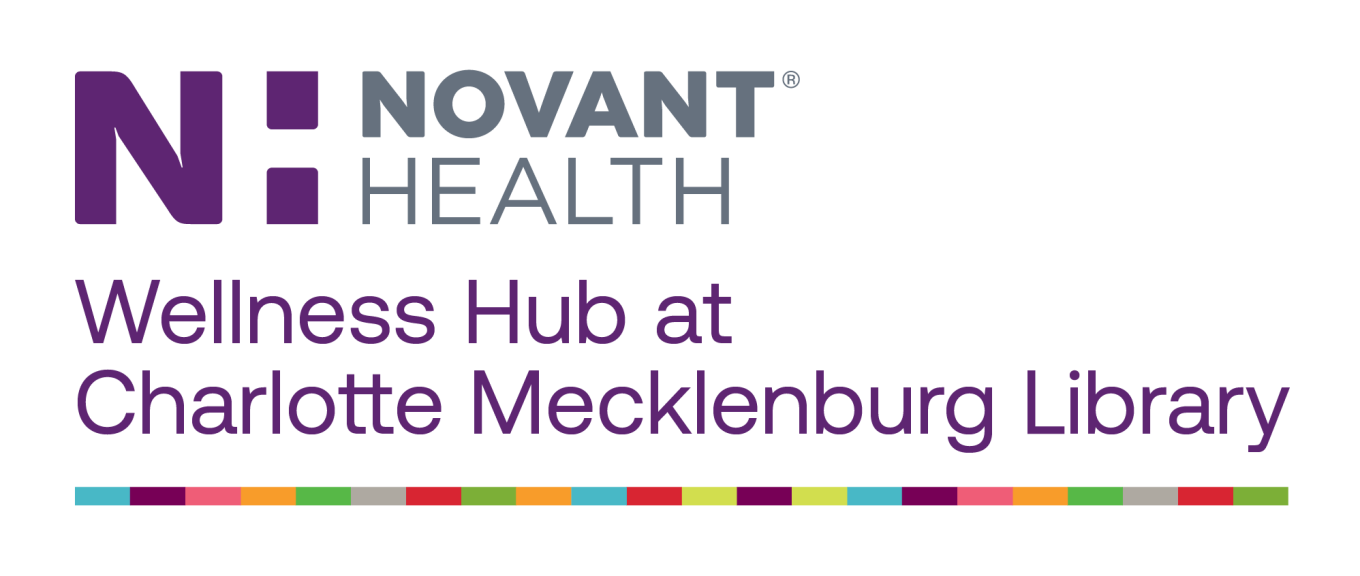
It is important to have the right information and support to keep yourself, or someone you love, well. Charlotte Mecklenburg Library and Novant Health are pleased to partner on the Novant Health Wellness Hubs at Charlotte Mecklenburg Library locations. This initiative helps create a sustainable impact by addressing community member’s health and social needs, so every person can achieve their highest level of health.
Speak with a Novant Health team member at no cost at the locations and dates listed below:
The Novant Health Wellness Hub at Charlotte Mecklenburg Library is not open on holidays or during library closures.
The Novant Health team member can help you better understand your needs and connect you to the right health, wellness, and social services.
This will include appointment scheduling for doctors and medical services, as well as referrals for:
· Access to affordable care
· Medication assistance
· Counseling access
· Housing information
· Food resources and more
Call 1-844-644-3578 or visit a Novant Health Wellness Hub at Charlotte Mecklenburg Library to learn more.

A year in review: CMLibrary's Top Reads of 2022
January 3, 2023
This blog was written by Ed McDonald, librarian at SouthPark Regional Library.
2022 is over so let's take a look at which books were most popular with Charlotte Mecklenburg Library readers this year. We pulled circulation data for our adult fiction (both print and digital), adult nonfiction, young adult fiction and graphic novels.
A few listings stood out this year:
- There were a few returns to the top fiction lists this year. The Last Thing He Told Me by Laura Dave was a contender last year and this year her novel was #1 on both the print and digital lists.
- Digital usage dominated again this year. The top print novel’s circulation number wouldn’t even have made the digital list. The top print nonfiction book would have been #7 on the digital list.
- Maybe You Should Talk to Someone: A Therapist, HER Therapist, and Our Lives Revealed by Lori Gottlieb returns to the top of the digital nonfiction list this year. This is the fourth year the book has appeared on this list and the second year in a row where it was #1.
- For the second year in a row Sisters by Raina Telgemeier was the most popular graphic novel.
We hope you enjoy going through this year’s lists and be sure visit your local library branch and our webpage and get started on reading the books for this year’s list.
Print Adult Fiction
- The Last thing He Told Me by Laura Dave
- The Lincoln Highway by Amor Towles
- Judges List by John Grisham
- The Paris Apartment by Lucy Foley
- The Midnight Library by Matt Haig
- The Maid by Nita Prose
- Apples Never Fall by Liane Moriarty
- Wish You Were Here by Jodi Picoult
- Verity by Colleen Hoover
- Cloud Cuckoo Land by Anthony Doerr
Digital Adult Fiction
- The Last thing He Told Me by Laura Dave
- Verity by Colleen Hoover
- Apples Never Fall by Liane Moriarty
- The Paris Apartment by Lucy Foley
- The Maid by Nita Prose
- The Seven Husbands of Evelyn Hugo by Taylor Reid Jenkins
- The People we Meet on Vacation by Emily Henry
- The Book Lovers by Emily Henry
- It Ends With Us by Colleen Hoover
- The Invisible Life of Addie LaRue by Victoria Schwab
Print Adult Nonfiction
- Atomic Habits: Tiny Changes, Remarkable Results: An Easy & Proven Way to Build Good Habits & Break Bad Ones by James Clear
- Crying in H Mart: A Memoir by Michelle Zauner
- These Precious Days: Essays by Ann Patchett
- Body Keeps the Score: Brain, Mind and Body in the Healing of Trauma by Bessel A. Van derkolk
- 1619 Project: A New Origin Story by Nikole Hannah-Jones
- Atlas of the Heart: Mapping Meaningful Connection and the Language of Human Experience by Brene Brown
- Guinness World Records 2022
- Finding Me by Viola Davis
- Left on Tenth: A Second Chance at Life by Delia Ephron
- Vanderbilt: The Rise and Fall of an American Dynasty by Anderson Cooper
Digital Adult Nonfiction
- Maybe You Should Talk to Someone: A Therapist, HER Therapist, and Our Lives Revealed by Lori Gottlieb
- Atomic Habits: Tiny Changes, Remarkable Results: An Easy & Proven Way to Build Good Habits & Break Bad Ones by James Clear
- Atlas of the Heart: Mapping Meaningful Connection and the Language of Human Experience by Brene Brown
- I’m Glad My Mom Died by Jennette McCurdy
- Crying in H Mart: A Memoir by Michelle Zauner
- Educated: A Memoir by Tara Westover
- Born a Crime by Trevor Noah
- The Palace Papers: Inside the House of Windsor – The Truth and the Turmoil by Tina Brown
- Finding me: A Memoir by Viola Davis
- Vanderbilt: The Rise and Fall of an American Dynasty by Anderson Cooper
Print Young Adult Fiction
- Sisters by Raina Telgemeier
- Maus: A Survivor’s Tale by Art Spiegelman
- A Good Girls Guide to Murder by Holly Jackson
- The Ballad of Songbirds and Snakes by Suzanne Collins
- One of Us is Lying by Karen McManus
- The Hate U Give by Angie Thomas
- Hatchet by Gary Paulsen
- Sea of Monsters by Rick Riordan
- They Both Die at the End by Adam Silvera
- Shadow and Bone by Leigh Bardugo
Digital Young Adult Fiction
- The Summer I Turned Pretty by Jenny Han
- A Court of Thorns and Roses by Sarah J. Maas
- Shadow and Bone by Leigh Bardugo
- Heartstopper, Volume 4 by Alice Oseman
- It’s Not Summer Without You by Jenny Han
- Heartstopper, Volume 3 by Alice Oseman
- Heartstopper, Volume 1 by Alice Oseman
- A Good Girls Guide to Murder by Holly Jackson
- We’ll Always Have Summer by Jenny Han
- Siege and Storm by Leigh Bardugo
Fiction & Nonfiction Audio Books (Digital and Physical)
- The Last Thing He Told Me by Laura Dave
- Where the Crawdads Sing by Delia Owens
- Apples Never Fall by Liane Moriarty
- A Court of Thorns and Roses by Sarah J. Maas
- The Guest List by Lucy Foley
- The Four Winds by Kristin Hannah
- The Subtle Art of Not Giving a F*ck: A Counterintuitive Approach to Living a Good Life by Mark Manson
- 101 Essays that will Change the Way You Think by Brianna Wiest
- The Paris Apartment by Lucy Foley
- The Seven Husbands of Evelyn Hugo by Taylor Reid Jenkins
#1 African American Novel
The Vanishing Half by Brit Bennett
#1 Graphic Novel
Sisters by Raina Telgemeier
#1 Mystery Novel
The Maid by Nita Prose
#1 Science Fiction Novel
Project Hail Mary by Andy Weir

Give your opinions on the new University City Library
January 17, 2023
- Aspects of the University City community that should be reflected in the branch
- Design aesthetics
- Meeting and study spaces
- Technology capabilities
- Type of print and digital collections offered
- Expectations regarding the overall customer experience at the new location
6 p.m. – 7:30 p.m.
University City Regional Library Community Room
301 East W.T. Harris Boulevard
Charlotte, NC 28262 Learn more
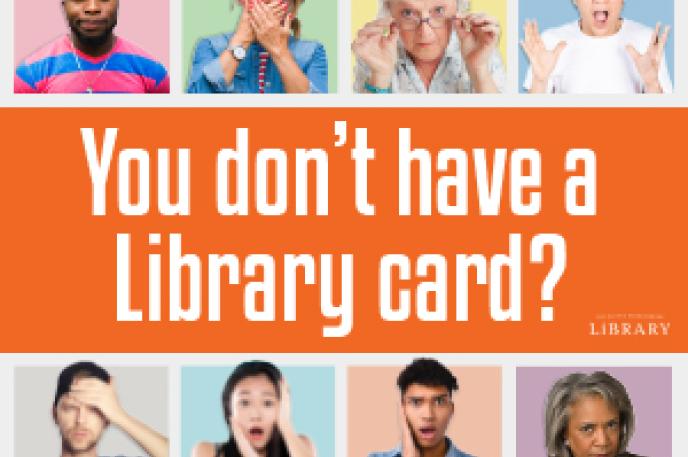
No Library card? Grab one this September.
August 30, 2022
This blog was written by Darrell Anderson, marketing and communications specialist for Charlotte Mecklenburg Library.
September is Library Card Sign-up Month, a time when libraries encourage community members (parents, caregivers, students – everyone) to sign up for a library card as the first step towards academic achievement and lifelong learning.
Charlotte Mecklenburg Library offers millions of resources including books, music, movies, creative materials, digital resources and programs (in-person and online) – all for FREE with a Library card. Signing up for a Library card is easy and anybody can do it. CLICK HERE to sign up for a Library card and download the CMLibrary mobile app on your tablet or smartphone. Use the app to place holds, access resources and much more.
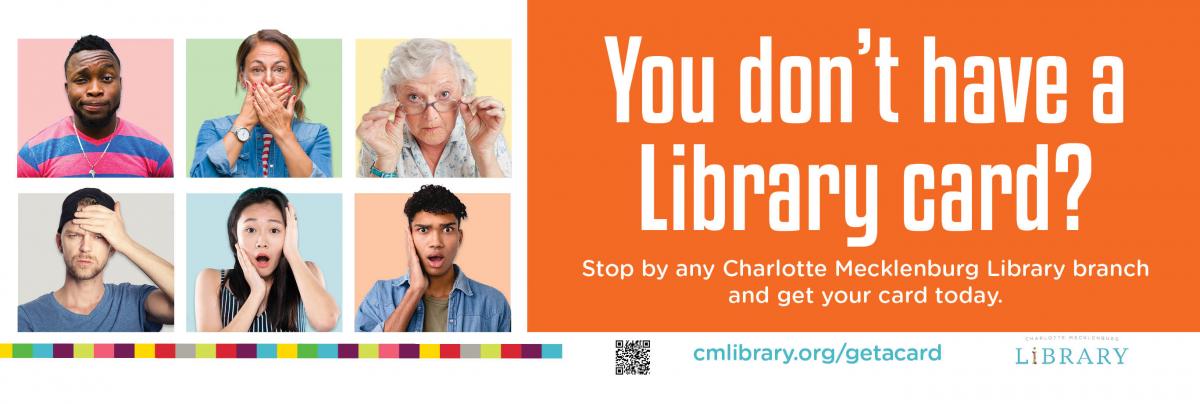
Check out just a small sampling of all the Library has to offer:
FREE Digital Resources
The Library is a tremendous one-stop shop, not just for books but for digital resources and so much more. Whether you need resources for your small business or just want to stream the newest hit music, the Library has a vast catalog of digital resources to fit your needs. You can access online tutoring and homework help for children through Tutor.com or find the resources to support a new (or existing) business venture with LinkedIn Learning. Maybe you want to perfect an existing skill - or learn a new one - with Universal Class or learn a new language with Transparent Language. When you have a Charlotte Mecklenburg Library card, you can access a multitude of online resources for FREE.
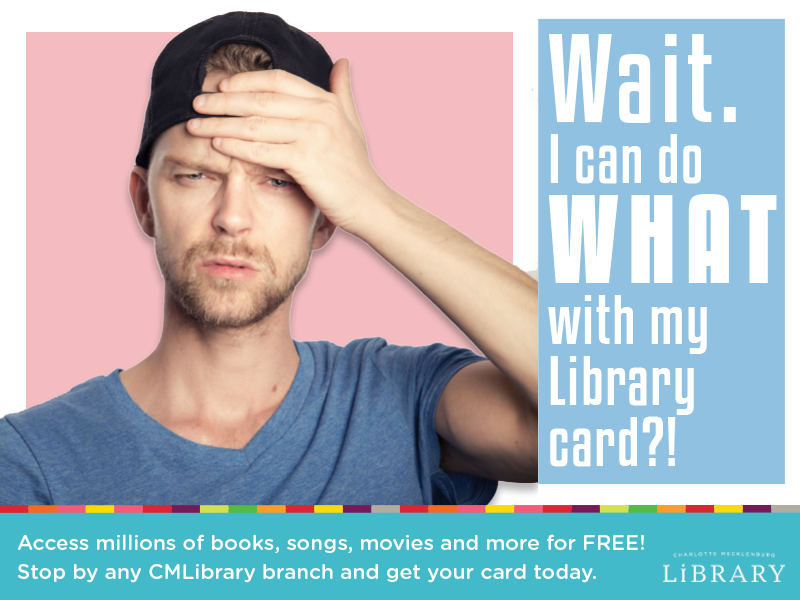
Do you enjoy watching movies or listening to music? Film and music buffs can benefit from a Library card, too. With the kanopy, OverDrive/Libby, hoopla and Freegal Music apps – again, available for FREE with a Library card, you can stream or download films, documentaries and the newest songs. Stream the latest from Beyoncé, Bad Bunny and classic Pink Floyd? Yep. Rediscover the literary works of Jane Austen, Isabel Allende and John Grisham? Absolutely.
The Library has it all.
Value Like No Other
Are you curious about how much money a Library card can really save you? $100? $300? Even up to $1,000! Subscription services can be pricey and tend to add up over the course of a calendar year, not to mention how much you might spend on books, magazines and music. There’s no need to pay for subscription services ever again. See how much you can save with the Library by using the Library Value Calculator. Input the number of books, magazines, DVDs, music and resources you’ve purchased or used in a year, and you’ll be amazed at how much you could save by switching to the Library. The numbers don’t lie; a Library card is a great value!
Online Programming from the Library
Did you know that you can participate in Library programming even while staying home? The Library is always here to support the community online, 24/7. Join us for a online storytime with your family or receive resume help all from the comfort of your couch. The Library offers a wide range of online programming for children, teens and adults on a daily basis.
See our listing of upcoming programs below.
FOR MORE INFORMATION AND TO REGISTER FOR PROGRAMS CLICK HERE

Get a Card Today
Signing up for a Library card is easy. CLICK HERE to sign up for one and download the CMLibrary mobile app on your smartphone or tablet for immediate access to place holds, access resources and much more.
So, now that you know everything you can do with your Library card, what are you waiting for? Join Charlotte Mecklenburg Library and get your Library card today!
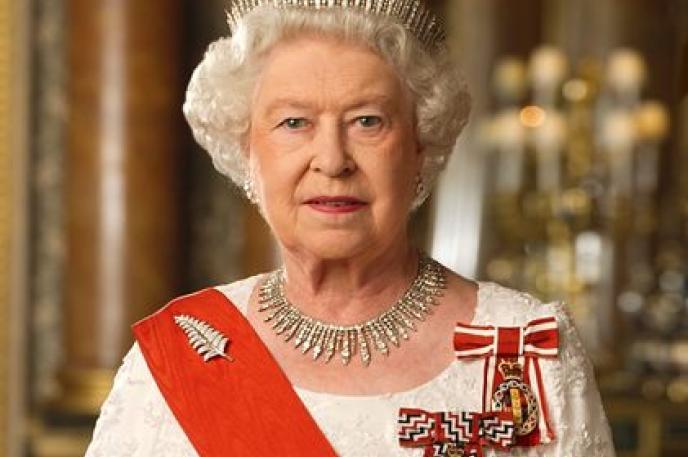
Remembering Queen Elizabeth II
September 9, 2022
This blog was written by Darrell Anderson, marketing and communications specialist for Charlotte Mecklenburg Library.
Ascending to the throne in 1952 at the age of 26, Queen Elizabeth II served the British people for 70 years. She was the longest-reigning monarch in Britain's history. Learn more about the life and legacy of Queen Elizabeth, the Royal House of Windsor and a history of the monarchy with a curated selection of resources from the Library:
Remembering Queen Elizabeth booklist
Getting to know Britain's Royal family booklist
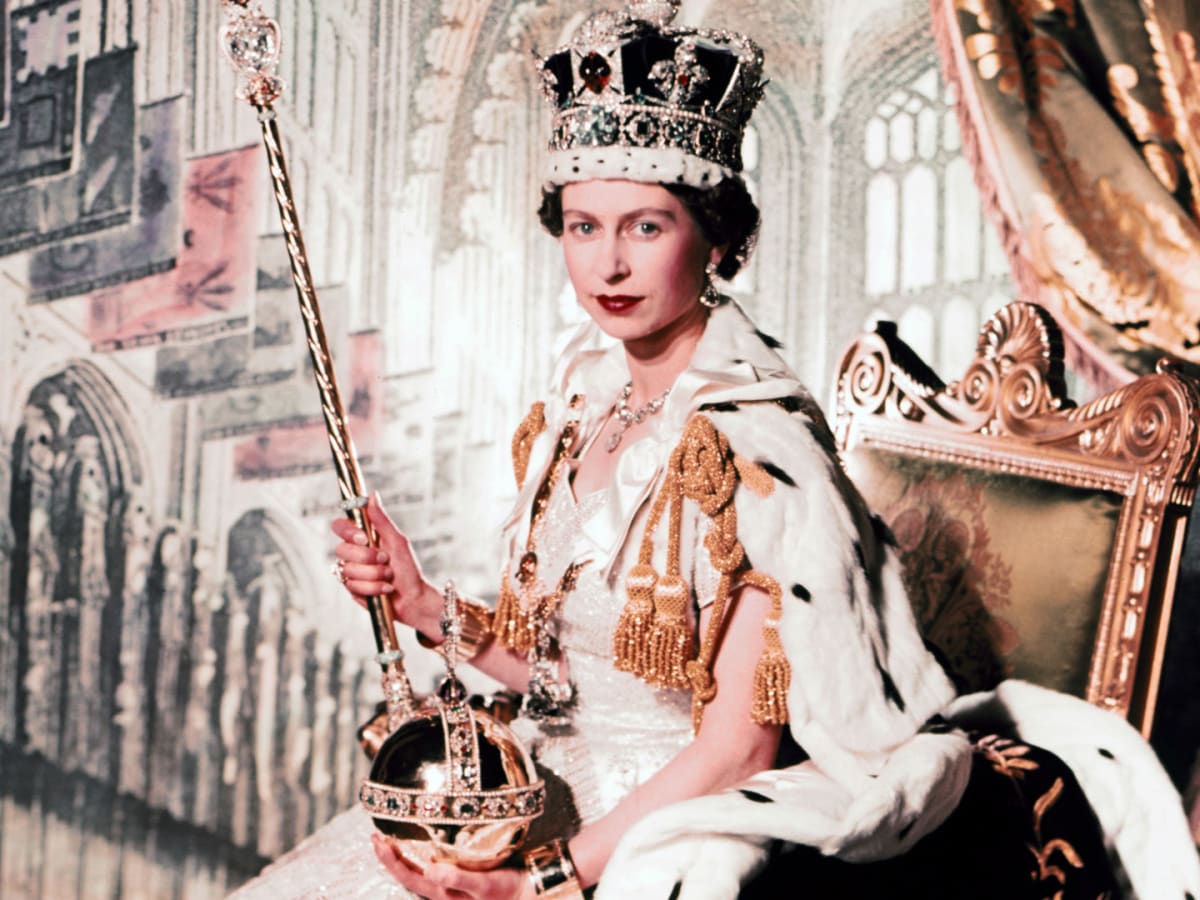
(Queen Elizabeth II at her 1952 coronation. Photo courtesy of Getty Images.)
Additional resources on the Queen and next steps for the Royal Family below:
The Queen's Life and Reign
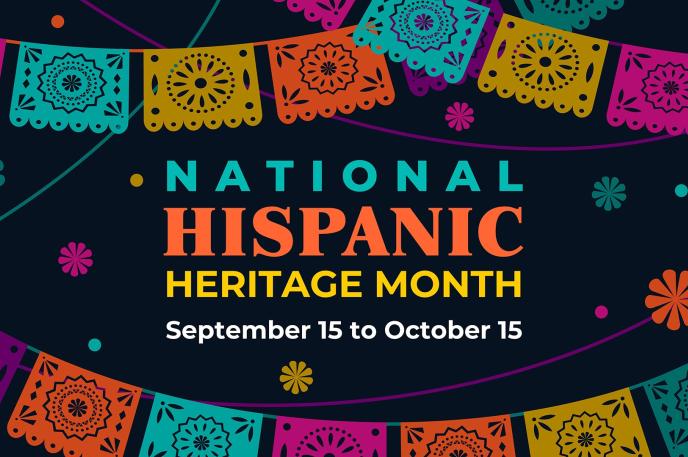
Celebrate Hispanic Heritage with Charlotte Mecklenburg Library
September 12, 2022
This blog was updated September 5, 2023 to reflect current Census data.
This blog was written by Darrell Anderson, marketing and communications specialist for Charlotte Mecklenburg Library.
Did you know that Hispanic Americans make up the largest immigrant group in the United States? In Mecklenburg County, an estimated 14% of the population, or 157,118 residents, is Hispanic.
Each year, from September 15 to October 15, Charlotte Mecklenburg Library joins in the national celebration of Hispanic Heritage Month, but we believe in celebrating el ritmo (the rhythm) of Hispanic culture yearlong! We honor the contributions of American citizens from Mexico, Central and South America, and the Caribbean, according to the Library of Congress’ official website. Need resources or looking for ways to celebrate Hispanic culture and the Latinx community? We provide a few resources below.
Curious to learn about the rich, cultural presence and contributions of Hispanic people in the Queen City? Click here to read Con A de Arte: A history of Hispanic Presence in Charlotte which takes a closer look our culturally rich neighbors.
Looking for a great book that explores Hispanic culture? Click here to dive into curated book lists that cover topics for children, teens and adults – including detective and mystery fiction, Young Adult (YA) books with Latinx Voices and other Spanish-English bilingual reads.

In collaboration with Cine Casual (www.cinecasual.com), a Charlotte-based site that specializes in Ibero-American cinema, you can find a curated a list of books and films that tell the struggles of being Hispanic/Latinx in the United States, while also highlighting and celebrating the pride and accomplishments of the community.
As always, you can explore our calendar of events to see what programs and activities are coming up in celebration of National Hispanic Heritage Month.
Looking for events around town? Check out the Latin American Coalition's 33nd Festival Latinoamericano on September 23, 2023 in Charlotte's east side and the 11th annual Hola Charlotte Festival hosted by Norsan Media in Uptown Charlotte on October 7, 2023.
We look forward to celebrating with you this month. Visit cmlibrary.org for more events, news and updates.

Access bilingual resources for the entire family at the Library
September 14, 2022
This blog was written by Darrell Anderson, marketing and communications specialist for Charlotte Mecklenburg Library.
Charlotte Mecklenburg Library offers a variety of ways to immerse students in 15 different languages including Spanish, Chinese, German, and others. Along with physical copies of books, audio books, magazines, etc., the Library has the following resources and services available to support the development of educational bilingual learning:
CultureGrams details daily life and culture, including history, customs and lifestyles on more than 200 countries. You can browse by Region, Country or Continent. Use the built-in translate tool to read information in other languages.
Kanopy Kids informs and assists in developing empathy, mindfulness and self-esteem through entertaining and educational videos. Categories include TV Series, Learning Languages, Animated Storybooks, Anime, Classic Films and Movies.
MakeMake is a collection of e-books in Spanish for youth ages 3-15. Additionally, the interface is in Spanish and most titles are books written by Latin American writers. Click “Explorar” to expand the browsing options. Accessible on your phone or tablet.
NC Kids Digital Library offers e-books, audiobooks, streaming videos and Read-Alongs. This collection was specifically designed for pre-K through 4th grade. The advanced search feature allows filtering by subject, language, reading level, format and much more.
TumbleBooks is a collection of animated, talking picture books. TumbleBooks can be read by you or to you! The collection includes story books, non-fiction books, graphic novels, puzzles and games. Go to the Language “Learning Tab” to see books in French and Spanish.
Tutor.com offers free homework help from a live, online, qualified tutor—up to 10 free tutoring sessions each week! Students can get help in English or Spanish in a wide range of subjects including math, science, English, social studies and essay review. Tutors available from 4 p.m. to 12 a.m.
Transparent Language combines robust courses, supplemental vocabulary, extensive grammar resources and mobile apps for a complete language-learning experience.
World Book Encyclopedia Online includes games, stories and activities. Information is read aloud when “moused over” or touched. Go to the “Enciclopedia Estudiantil Hallazgos” for Spanish content.

Get to know the Mint Hill Branch community
September 21, 2022
This blog post was written by Sally Deason, Librarian for Charlotte Mecklenburg Library.
The Mint Hill Branch Library is in the heart of Mint Hill and has been the home away from home for Mint Hill residents for over 60 years. As the first town founded in Mecklenburg County, Mint Hill took shape in 1750 and built a solid community foundation. Mint Hill’s growing population now boasts over 26,000 diverse residents. Once a hub of farming and dairy production, Mint Hill is still surrounded by farmland and heavily wooded neighborhoods. It offers homegrown entertainment in a quiet community.
Part of the Charlotte metropolitan, the hopping suburb of Mint Hill is settled just outside of the city in the southeastern portion of Mecklenburg County. Popular town activities include the annual Mint Hill Madness festival, Scarecrow contest, weekly farmers market, Christmas parade and more. The Mint Hill Chamber of Commerce supports new businesses and promotes all commerce in the area as well as highlights nonprofit organizations. The Town Hall sits just down the road from the library in a recently constructed facility. Adjacent to that, is the new police station. All of these are within walking distance to neighborhoods, banks, shops, restaurants (including the Carolina Creamery- yum) and your local library! Don’t forget to dig up some old-time fun with the Mint Hill Historical Society.
 Just outside of the main intersection of Lawyers Road and Matthews-Mint Hill Rd, you will find several wonderful parks. Both the Mint Hill Park on Wilgrove as well as the Mint Hill Veterans Memorial Parks are maintained by the town of Mint Hill. The new Stevens Creek Nature Preserve is part of the Mecklenburg County Parks and Recreation division. All offer wonderful outdoor options for the family. Further towards Albemarle Road you will find the Simmons YMCA with the New Americans Welcome Center. The closest US Post Office is near the intersection of Lawyers Road and Wilson Grove Road, but there is a blue mailbox in front of the Mint Hill Barber Shop.
Just outside of the main intersection of Lawyers Road and Matthews-Mint Hill Rd, you will find several wonderful parks. Both the Mint Hill Park on Wilgrove as well as the Mint Hill Veterans Memorial Parks are maintained by the town of Mint Hill. The new Stevens Creek Nature Preserve is part of the Mecklenburg County Parks and Recreation division. All offer wonderful outdoor options for the family. Further towards Albemarle Road you will find the Simmons YMCA with the New Americans Welcome Center. The closest US Post Office is near the intersection of Lawyers Road and Wilson Grove Road, but there is a blue mailbox in front of the Mint Hill Barber Shop.
New to Charlotte? Explore other neighborhoods through the Charlotte Mecklenburg Library blog and WelcomeCLT, a digital space created for newcomers to Charlotte.
Resources:
Mint Hill Branch Library | 6840 Matthews-Mint Hill Rd, Mint Hill, NC 28227 | 704-416-5200
Chamber of Commerce | 7900 Matthews-Mint Hill Rd bldg 2 ste b, Mint Hill, NC 28227 |704-573-8282
Mint Hill Parks & Recreation | 4430 Mint Hill Village Lane, Mint Hill, NC 28227 | 704-545-9726
Mint Hill Police Department | 7151 Matthews-Mint Hill Rd. Mint Hill, NC 28227 | 704-545-1085
Mint Hill Women’s Club | MHWC at 14601 Barney Dr, Mint Hill NC 28227
Mint Hill Historical Society | 7601 Matthews-Mint Hill Rd, Mint Hill, NC 28227 | 704-583-0726
Servant’s Heart | N 9229, Lawyers Rd, Mint Hill, NC 28227 | 704-680-6533
Simmons YMCA | 6824 Democracy Dr, Charlotte, NC 28212 | 704-716-6600
Town of Mint Hill | 4430 Mint Hill Village Lane, Mint Hill, NC 28227 | 704-545-9726
